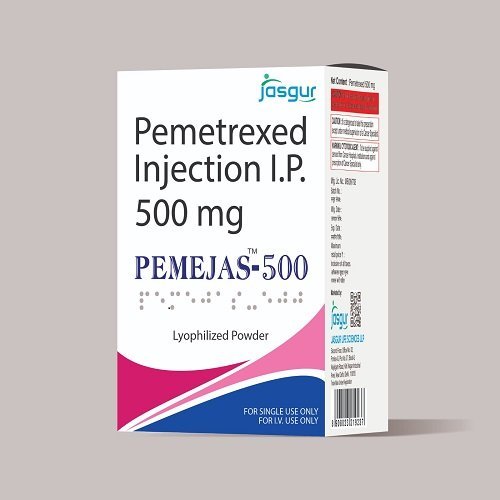Revolutionizing Oncology: Discovering the Best Anti-Cancer Medicines for Effective Treatment
In the fight against cancer, the search for the best anti-cancer medicines is a quest that affects millions of lives around the globe.

Introduction: In the fight against cancer, the search for the best anti-cancer medicines is a quest that affects millions of lives around the globe. With cancer being one of the leading causes of death worldwide, advancements in medical research and pharmaceutical science have led to the development of innovative treatments that not only target cancer cells but also improve the quality of life for patients. This blog aims to explore the latest in cancer treatment, focusing on the best anti-cancer medicines available today, their mechanisms of action, effectiveness, and the future of cancer therapy.
Understanding Cancer:
To fully grasp the significance of the best anti-cancer medicines, it is essential to understand what cancer is and how it develops. Cancer is a complex group of diseases characterized by uncontrolled cell growth. This section will discuss the various types of cancer, their causes, and the importance of early detection and diagnosis. Understanding these factors will underscore the critical role of best anti-cancer medicines in treating and managing the disease effectively.
The Evolution of Anti-Cancer Medicines:
The journey of best anti-cancer medicines has seen remarkable advancements over the decades. In this section, we will delve into the history of cancer treatments, from the early use of chemotherapy to the more recent introduction of targeted therapies and immunotherapies. We will highlight how these advancements have transformed cancer treatment, making it possible for patients to achieve better outcomes with the best anti-cancer medicines available.
Types of Best Anti-Cancer Medicines:
When it comes to cancer treatment, understanding the various types of best anti-cancer medicines is essential. This section will provide an in-depth look at the different classes of anti-cancer drugs, including:
- Chemotherapy: Traditional treatment that uses cytotoxic drugs to kill rapidly dividing cancer cells.
- Targeted Therapy: These drugs target specific molecules involved in cancer growth and progression, minimizing damage to healthy cells.
- Immunotherapy: This innovative treatment harnesses the body's immune system to fight cancer more effectively.
- Hormone Therapy: Used primarily for cancers that are hormone-sensitive, these medicines block the production or action of hormones.
- Monoclonal Antibodies: Designed to target specific proteins on cancer cells, facilitating destruction by the immune system.
By understanding these categories, readers can better identify which treatments may be considered the best anti-cancer medicines for their specific type of cancer.

Effectiveness of Best Anti-Cancer Medicines:
The effectiveness of the best anti-cancer medicines is a critical concern for patients and healthcare providers. This section will present data on treatment success rates, discussing factors that influence these outcomes, such as cancer stage, patient health, and adherence to treatment. We will also explore the concept of personalized medicine and how it can optimize the effectiveness of the best anti-cancer medicines for individual patients.
Side Effects and Management:
While the best anti-cancer medicines provide hope, they can also come with a variety of side effects. This section will outline common side effects associated with different classes of anti-cancer treatments and provide strategies for managing these effects. Understanding potential side effects is crucial for patients to maintain adherence to their treatment plans and ensure a better quality of life throughout their cancer journey.Personalized Medicine in Oncology: The advent of personalized medicine has revolutionized cancer treatment. In this section, we will discuss how genetic profiling and biomarker testing can guide healthcare providers in identifying the best anti-cancer medicines for their patients. Personalized approaches not only enhance treatment efficacy but also help minimize side effects, ensuring that patients receive the most appropriate therapy for their unique genetic makeup.
The Role of Clinical Trials:
Clinical trials are essential for advancing the development of the best anti-cancer medicines. This section will explore the significance of participating in clinical trials, how they contribute to the discovery of new treatments, and the potential benefits for patients. We will highlight notable clinical trials that have led to significant advancements in cancer therapy, showcasing how these studies can lead to the next generation of best anti-cancer medicines.Emerging Research and Innovations: The future of cancer treatment is bright, with ongoing research focused on discovering new anti-cancer medicines and improving existing therapies. This section will highlight some of the most promising developments in the field, such as CAR T-cell therapy, oncolytic virus therapy, and new drug combinations that are paving the way for more effective treatments. These innovations have the potential to redefine what is considered the best anti-cancer medicines in the coming years
Support Systems and Resources:
Navigating a cancer diagnosis can be overwhelming, but support is available. This section will explore various resources, including support groups, educational materials, and healthcare networks, that can assist patients in finding the best anti-cancer medicines and coping with the emotional and physical challenges of cancer treatment. Emphasizing the importance of community support can empower patients to take charge of their health journey.
Conclusion:
In conclusion, the quest for the best anti-cancer medicines is a journey filled with hope, resilience, and continuous advancement. As medical science progresses, individuals diagnosed with cancer now have access to treatments that can significantly improve their quality of life and long-term outcomes. This blog aims to provide valuable insights and resources to help readers navigate their cancer treatment journeys with confidence, embracing the possibilities of a healthier and brighter future.
What's Your Reaction?












